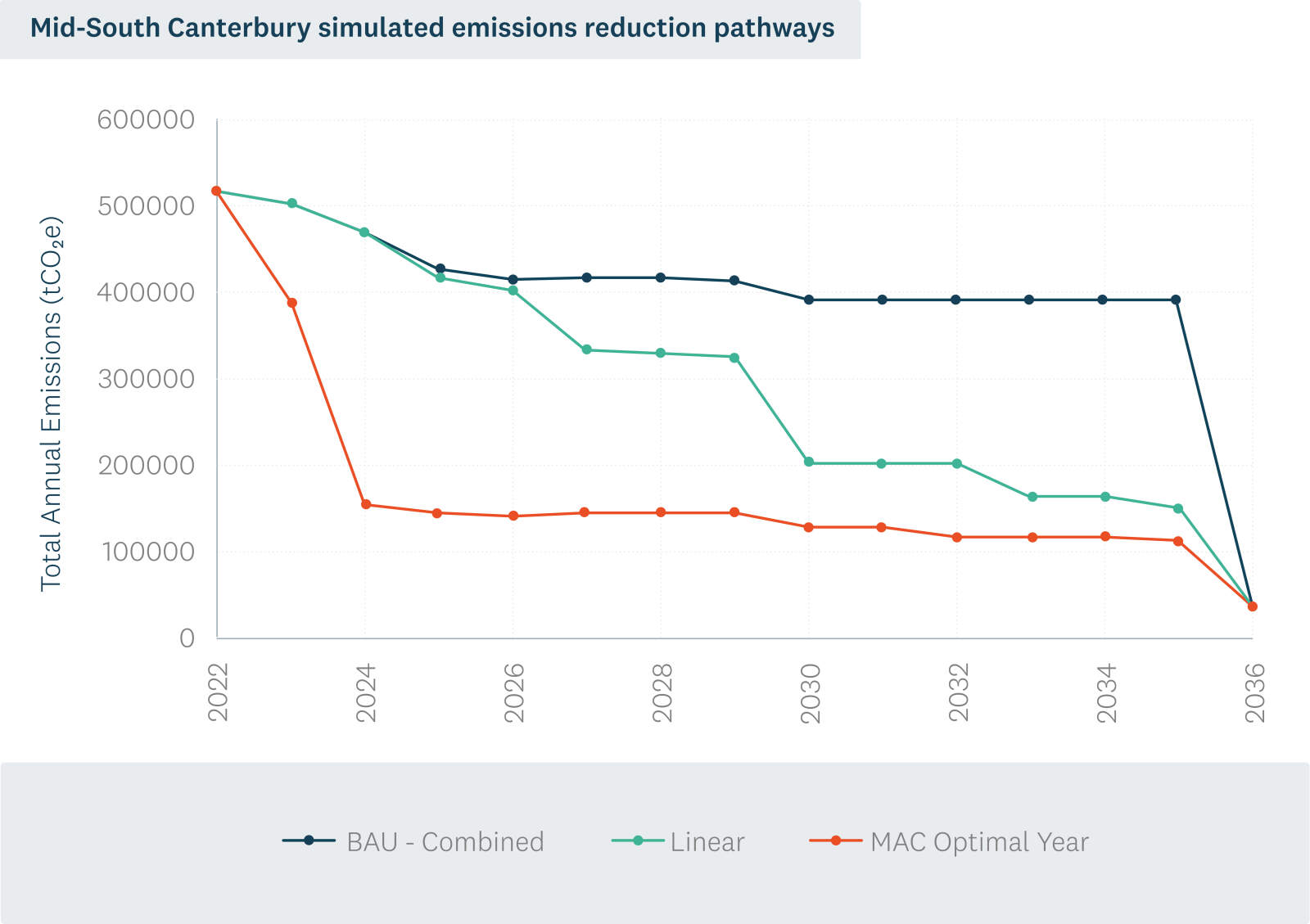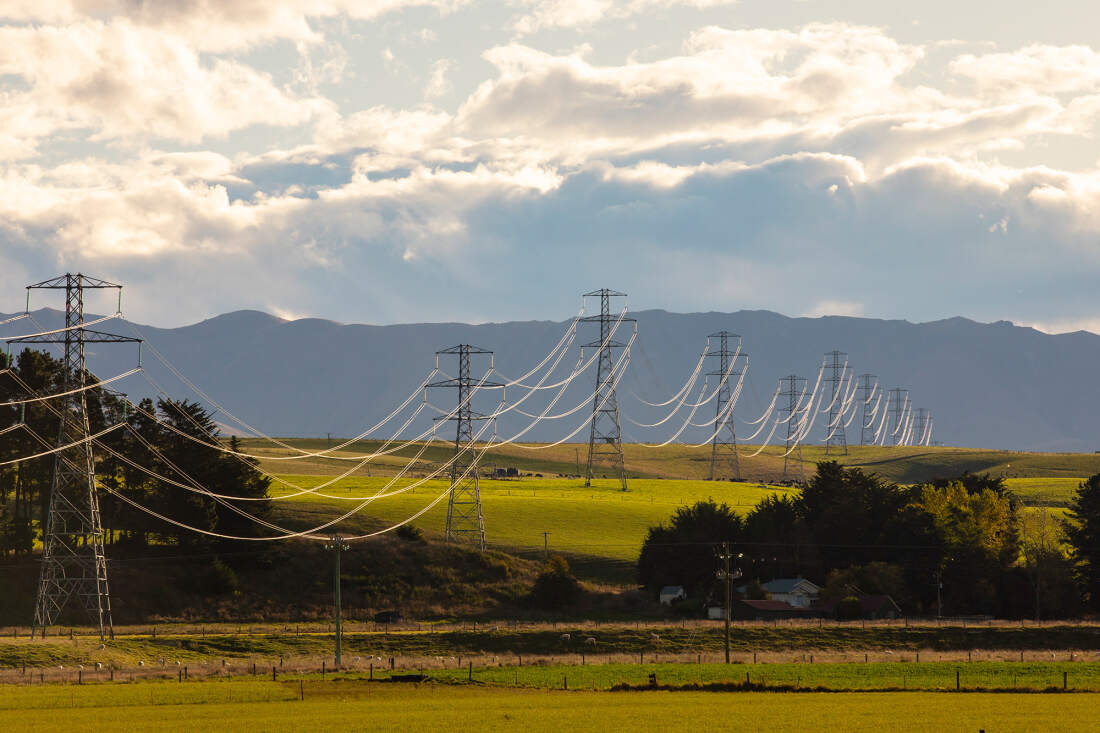Benefits for Mid-South Canterbury
A Mid-South Canterbury specific decarbonisation pathway will enable:
- Best use of capital through collaboration and information sharing.
- Demand (or critical mass) for fuel suppliers/technology providers to provide the confidence for fast-tracking the development of new supply chains or capacity building initiatives.
- Early decision making to improve efficiency and future proof infrastructure investments.
- Opportunity for joint procurement of low-emissions technologies.
About Mid-South Canterbury RETA
A total of 33 sites – spanning the dairy, meat and food processing, manufacturing and commercial sectors are covered by the Mid-South Canterbury RETA. These sites either have process heat equipment larger than 500kW or are sites for which EECA has detailed information about their decarbonisation pathway. Most of Mid-South Canterbury’s emissions come from coal. RETA aims to eliminate as much of these process heat emissions as possible.
The focus of the Mid-South Canterbury report – the culmination of phase one of the RETA programme, is the fuel switching decision and the key role demand reduction plays. Both biomass and electricity are considered as potential fuel sources.
RETA also recognises the importance of efficient demand reduction and thermal efficiency measures for reducing energy consumption and right-sizing the boiler investment, which in turn affects decision-making around fuel switching.
Organic waste was piloted for this report given the potential for energy recovery – via combustion or anaerobic digestion.
The report has illustrated a range of decarbonisation pathways, all of which demonstrate how the combined decisions of a range of process heat users may lead to common infrastructure challenges and opportunities from a supply perspective. All pathways eliminate over 90% of process heat emissions in the region (a reduction of 504kt out of a total 542kt) by 2036 but at significantly different paces.
Mid-South Canterbury simulated emissions reduction pathways

Insights explored in the Mid-South Canterbury report:
- The role demand reduction plays in the fuel switching decision.
- The need for improved information flow between RETA process heat users and biomass and electricity network owners and its role in good decision making.
- Timeframes for decarbonisation under different pathway scenarios, that is:
The ‘BAU’ decarbonisation pathway, which uses the project timings in the Individual ETAs (or 2036 where unavailable), is the slowest decarbonisation path. Around half the emissions reductions are assumed to occur in 2036.
The ‘MAC Optimal’ decarbonisation pathway with acceleration co-funding doubles the pace of decarbonisation, with 75% of the decarbonisation occurring by the end of 2025.
The ‘linear’ approach which chooses the optimal fuel source (biomass or electricity) using the MAC approach, but the growth in overall demand for each fuel is smoothed through time to avoid lumpy, sudden increases in demand.
- The potential of biomass as part of the local mix and the work needed to accelerate harvesting of high-quality biomass in the region’s forests.
- The sizing of electricity and the feasibility of accommodating more significant electrification projects and maintaining security of supply.
- The application of fuel flexibility - a theme in the consumption of electricity and assessment of the costs of both electricity network upgrades is the ability of a site to leverage its ability to temporarily reduce or shift demand (potentially at short notice).
- The role of organic waste and how it can be utilised for energy recovery.
Read the report
Download the Mid-South Canterbury RETA report and discover the regional benefits of decarbonisation.
We have also attached the Electricity Workstream reports for further details.
Spare Capacity and Load Characteristics [PDF, 7.3 MB]
Electrical Network - Supplementary Information [PDF, 13 MB]
Read the summary RETA report [PDF, 5.3 MB]
This enables us to look forward, to future proof the region and ensure business continuity in a low emissions environment
Next steps and support
Where decarbonisation is financially viable, EECA encourages organisations to explore the potential for acceleration.
EECA and Venture Timaru are happy to hear from supply side stakeholders to support the implementation of recommendations in the Mid-South Canterbury RETA report.
Email RETA@eeca.govt.nz or kanchana.marasinghe@eeca.govt.nz with any questions.
Wayfinder
-
Co-funding opportunities
-
Explore other regions
-
Explore the RETA tool

